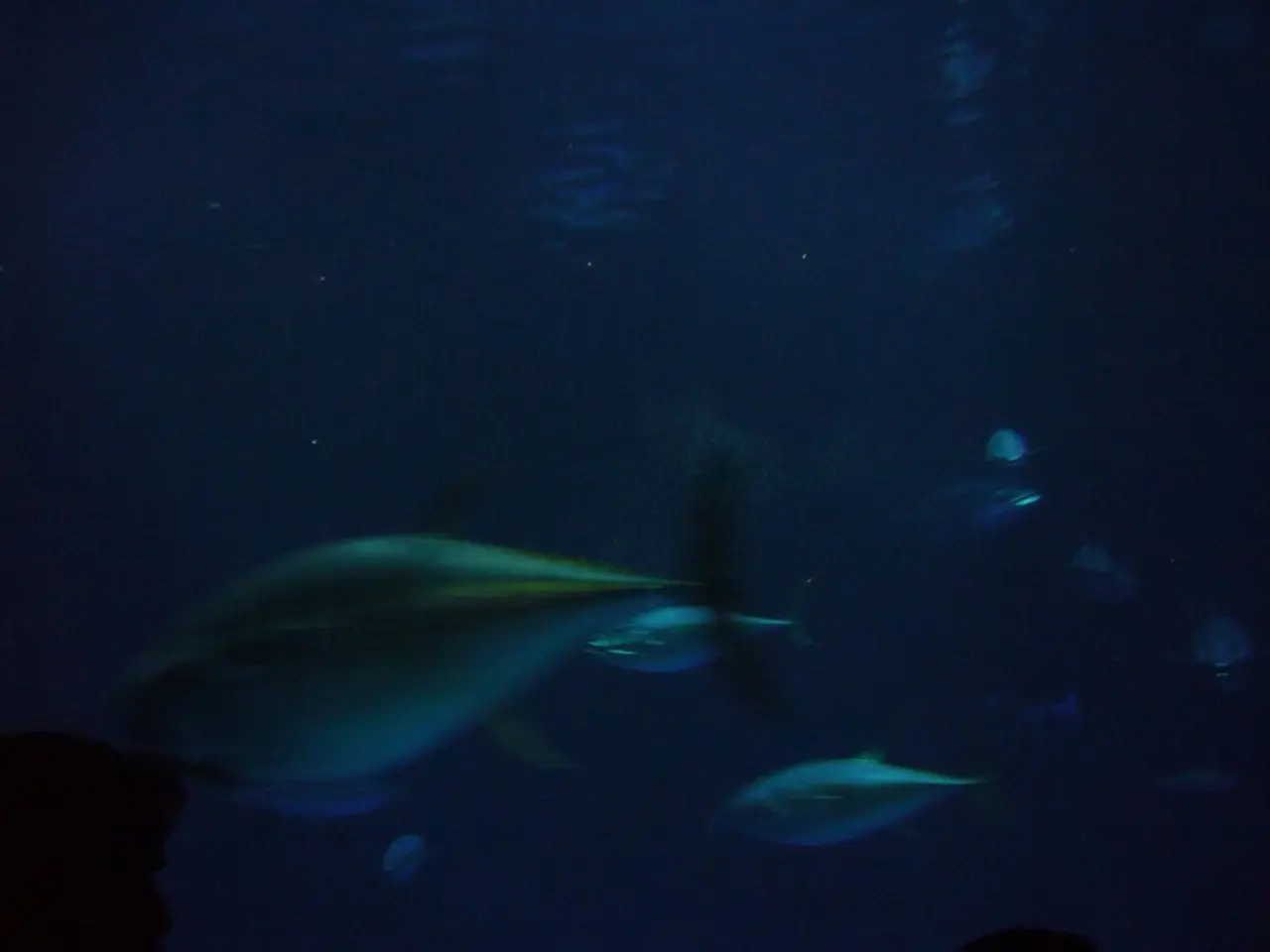Unearthed Ocean Depth Mystery: Unveiling Smith's Witch Eel near Indian Shores
In a fascinating discovery, a new deep-sea eel species, Facciolella smithi, has been found off the Kerala coast in the Arabian Sea. This unique marine creature, officially named and published in the journal Zootaxa on June 30, 2025, is set to revolutionise our understanding of deep-sea life and its resilience.
The elongate, ribbon-like body of Facciolella smithi, reaching just over two feet in length, allows it to glide effortlessly through the deep-sea waters. Its body displays a two-tone colouration, with a rich brown upper half and a milky white underside, possibly aiding camouflage in the dim ocean depths. The large head features a duckbill-like snout, giving it a unique, almost prehistoric appearance.
One of the most intriguing aspects of this new species is its ability to adapt to the low-light environment of the deep sea. The relatively small eyes are a testament to this adaptation, while the cone-shaped teeth, designed to grasp slippery or soft-bodied prey, reveal its hunting strategies. Remarkably, many specimens show evidence of regrown or regenerated tails, a crucial survival trait in the competitive deep-sea ecosystem.
Facciolella smithi inhabits depths between 260 to 460 meters (approximately 850 to 1,500 feet), thriving in dark, cold, high-pressure deep-sea habitats. It is typically found near the seafloor, where it burrows into soft sediments. The eel navigates the pitch-black waters using sensory adaptations rather than relying on sight.
This discovery offers a chance to better understand the complexity and resilience of marine life. Studies conducted by the Indian Council of Agricultural Research are currently analysing the nutritional composition of Facciolella smithi, with potential implications for food science and pharmaceuticals.
The eel's name was given in honour of renowned ichthyologist David G. Smith. The eel, initially discovered in January 2024, was handed over to marine biologists Paramasivam Kodeeswaran and T. T. Ajith Kumar for further investigation. The discovery of Facciolella smithi represents the unexplored richness of our oceans and opens new avenues for marine biological research.
In conclusion, the discovery of Facciolella smithi is a significant addition to our understanding of deep-sea ecosystems and their inhabitants. Its unique characteristics and adaptations make it a valuable subject for ongoing research, potentially leading to breakthroughs in various fields, including marine biology, evolutionary studies, and environmental science.
In light of its unique characteristics and adaptations, Facciolella smithi offers a promising subject for research in the realm of environmental science, exploring how organisms thrive and adapt in extreme deep-sea conditions. As the eel's potential nutritional and pharmaceutical prospects are being investigated by the Indian Council of Agricultural Research, this research may have implications not only for marine biology but also for the intersections of health-and-wellness and food science. Furthermore, with the increasing importance of studying and preserving our environment, understanding Facciolella smithi's resilience in the deep sea could potentially contribute to advancements in environmental science, leading to more effective conservation efforts.




